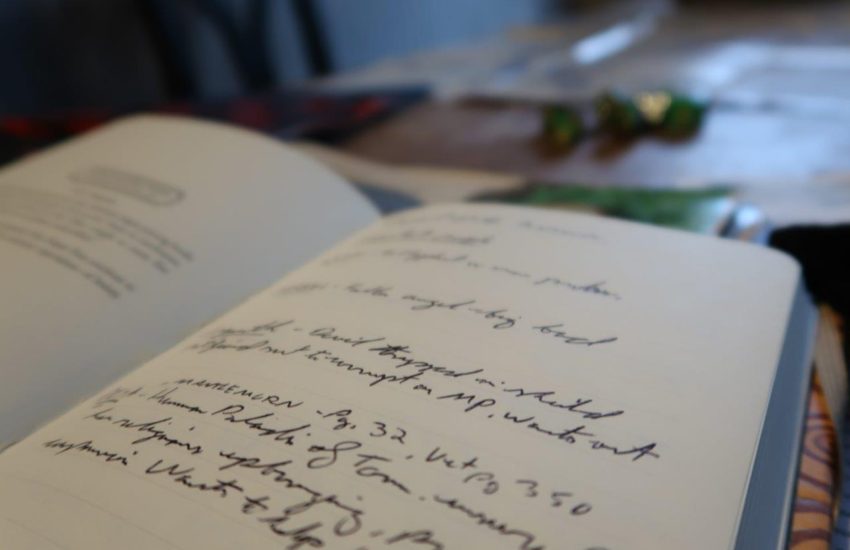Ahh, the age-old question.
As a Dungeon Master, it can be difficult to decide how much to prepare before your sessions — especially when you have a party that takes things off the metaphorical rails every now and then.
The key (as with everything in life, it seems) is to find a balance.
- Check these out:
On one hand, we have improvisation: The ol’ role-player’s best friend. It leads to funny moments, doesn’t take much time beforehand, and leaves a lot of room for your players to step up with their own creativity.
But improv can have several downsides, too. It’s not as great for deep storytelling, and can make foreshadowing difficult unless you are insanely good at being “vaguely ominous” as a DM.
Additionally, the momentum of an improv session can be hard to control; if you get stumped at the wrong moment, it can feel like trying to move a bus uphill — or getting rolled over by one.
On the other hand, we have planning, AKA the great demon that keeps us DMs up the night before the session, always with one more thing to check off the list. Okay, okay, it’s not usually that bad, but there’s always the fear that you’ve missed something.
The advantages of planning are that you can produce more thoughtful stories and encounters, create deeper and more interesting characters, and engineer the momentum of the session much better than you ever could while merely improvising.
The disadvantages are that it makes for a long and tiresome session 0, a consistent effort on the DM’s part to keep up with the notes as the campaign moves on, and you have to be ready to improvise anyways, because players will always find a curveball to throw at you.
You have to find a balance that works for you, your schedule, and your players.
Personally, I lean toward planning for plot and improv for characters; it’s more fun (and hilarious) for me at the table to improvise NPCs and dialogue, and I can plan the plot in large chunks so I don’t have to do a ton of work right before every session.
However, it’s important as a DM to remember that you’re not the only one at the table. Different planning methods (or a lack thereof) put players in different positions, so communication is going to be your best friend. You need to communicate with your players about how much of the plot they are willing to carry, what DMing style they are expecting from the story, etc.
At the end of the day, improv is great for laughs with friends but bad for depth, and planning is great for depth but harder on the DM… so you just need to find the right measure of both for your specific table.
We know, we know — easier said than done!
- Check these out:


